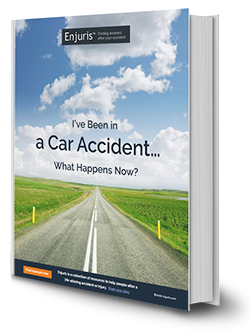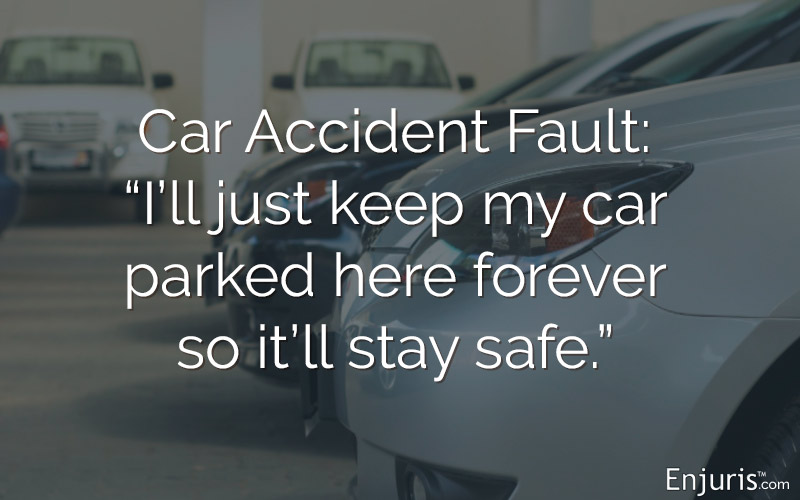Find out about Wyoming car accident laws and insurance requirements
A car accident can be devastating — or a minor inconvenience. Either way, how you recover damages is based on the Wyoming fault system and insurance laws. Here’s everything you need to know about handling a Wyoming car accident.
Wyoming is known for beautiful nature and national parks including Yellowstone and Grand Teton. While the state has the smallest population in the country, it’s famous for its Wild West history and culture.
But it’s not all cowpokes and Westerns—Jackson Hole is home to plenty of stars. In addition to the ones you see in the gorgeous night skies, you could also bump into stars like Kim Kardashian, Harrison Ford, Sandra Bullock, Brad Pitt, Tiger Woods, Matthew McConaughey, Uma Thurman, and others who are rumored to have homes there.
Wyoming has more than 3,600 miles of interstate lane miles, including I-25, I-80 and I-90.
Regardless of why you’re traveling in the Equality State—work, leisure, or something else—it’s important to know state laws for car accidents in case you happen to be involved in one while you’re there.
Wyoming car accident laws
Wyoming is a “fault” state for car accidents
In a traditional fault-based system, like the one in Wyoming, the person who causes the accident pays for the victims’ related costs. This includes property damage, medical treatment, lost income, and more.
There are three ways to claim damages for a Wyoming car accident:
- The injured person files a claim with their own insurance company. The insurance company will then pursue a subrogation claim, which means they will likely make a claim against the at-fault driver’s insurance company;
- The injured person files a third-party claim against the at-fault driver’s insurance, which means you file a claim directly with their insurance; or
- The injured person files a personal injury lawsuit against the at-fault driver.
Usually, people go with option one (at least at first). Your insurance company should be the first call as you’re trying to sort out financial compensation for an accident. Even if it’s the other party’s responsibility to pay, part of the role of your insurer is to “go after” the other person’s insurance policy if necessary.
Filing a lawsuit is your last resort. The process is time-consuming and costly, and then you’re at the whim of a judge or jury to determine your fate, as opposed to relying on your personal injury attorney to negotiate with the other side to reach a mutually acceptable agreement.
Wyoming car insurance requirements
As a Wyoming driver, you’re required to maintain the following minimum liability insurance coverage:
| $25,000 | Bodily injury or death of one person in an accident |
| $50,000 | Total bodily injury or death liability |
| $20,000 | Property damage per accident |
This insurance covers a driver, pedestrian, passenger, or other road user who is injured. It pays for medical treatment, property damage or loss, lost wages, and other related expenses. Remember, these amounts are state-mandated minimums but most drivers will opt for additional coverage. If you’re at fault for a crash with a vehicle carrying several passengers, and all of them are injured, even minor injuries can add up quickly. If your policy is at the minimum amount and their medical bills total more than your policy covers, you’d be required to pay out of pocket for the remainder of their costs.
But what about ME?
Good question! The coverage above applies to the victims of an at-fault driver’s negligence. The driver is not covered under a liability policy. If you’re that driver, your bills are paid only from additional coverage like collision insurance.
Wyoming auto accident settlement taxes
Usually, the compensation you receive for a Wyoming car accident is not taxable, but exceptions exist.
- Settlement funds for your medical bills are not taxable unless you deducted them on your previous tax return. If that happened, then you need to pay taxes on the amount you deducted.
- You will likely need to pay state and federal income tax on the amount you recovered for lost wages, as the IRS would consider this your regular income.
- If you received compensation for pain and suffering, this is likely not taxable as long as it is related to a physical injury. If it’s for mental anguish, it is usually taxable.
- Punitive damages received are always taxable by the state and federal government.
If you have tax-related questions about your settlement or damage award, you can consult your lawyer or a CPA for advice.
Wyoming comparative negligence laws
Each state follows one of four comparative negligence rules. Wyoming follows the rule of modified comparative negligence. The plaintiff may recover damages from the at-fault party (defendant) if the plaintiff’s own share of liability is not more than 50%. Their damage award is reduced according to their share of responsibility.
Here’s how this works: Suppose the defendant was speeding on an interstate highway and rear-ends the plaintiff’s slower-traveling vehicle. Usually, a rear-end accident is clearly the approaching driver’s fault. It is in this case, too. But, the investigation found that the plaintiff (in the front car) was distracted at the time of the crash and had swerved a little out of their lane, into the lane of the defendant’s car.
Therefore, even though the defendant caused the accident, the plaintiff contributed to the accident by swerving and being inattentive. If he had been paying more attention, he would have stayed in his lane and might have observed the car speeding up behind him in time to get out of the way.
The court determined that the plaintiff was 40% responsible for the crash. Therefore, if the damage award was $100,000, the plaintiff would receive 40% less, or $60,000.
This rule affects both court cases and insurance payouts. That’s why it’s very important to seek the assistance of a qualified Wyoming personal injury lawyer if you’ve been in an accident if there are any questions about liability. Your lawyer will negotiate liability with the other parties, which can have a major effect on the outcome of your claim.
Wyoming car accident reporting requirements
Wyoming Statutes § 31-5-1105 indicates that a driver of a vehicle involved in an accident that results in injury or death, property damage of at least $1,000, or the disabling of any vehicle, must:
- Report the accident to the local police department if the accident is within a municipality; or
- Report the accident to the nearest state highway patrol or county sheriff’s office.
If you’ve been in a Wyoming car accident, it’s important to understand all of your legal options and remedies. Contact a personal injury lawyer for the best advice on how to proceed.
Still not finding what you need?
Check out our other articles on motor vehicle accidents in Wyoming.
Did you know that car accident law varies by state?
Hurt in a car crash? You may find these resources helpful
Need a lawyer?
What does an injury lawyer do?
A personal injury lawyer helps individuals who have sustained injuries in accidents to recover financial compensation. These funds are often needed to pay for medical treatment, make up for lost wages and provide compensation for injuries suffered. Sometimes a case that seems simple at first may become more complicated. In these cases, consider hiring an experienced personal injury lawyer. Read more
Common car accidents





















